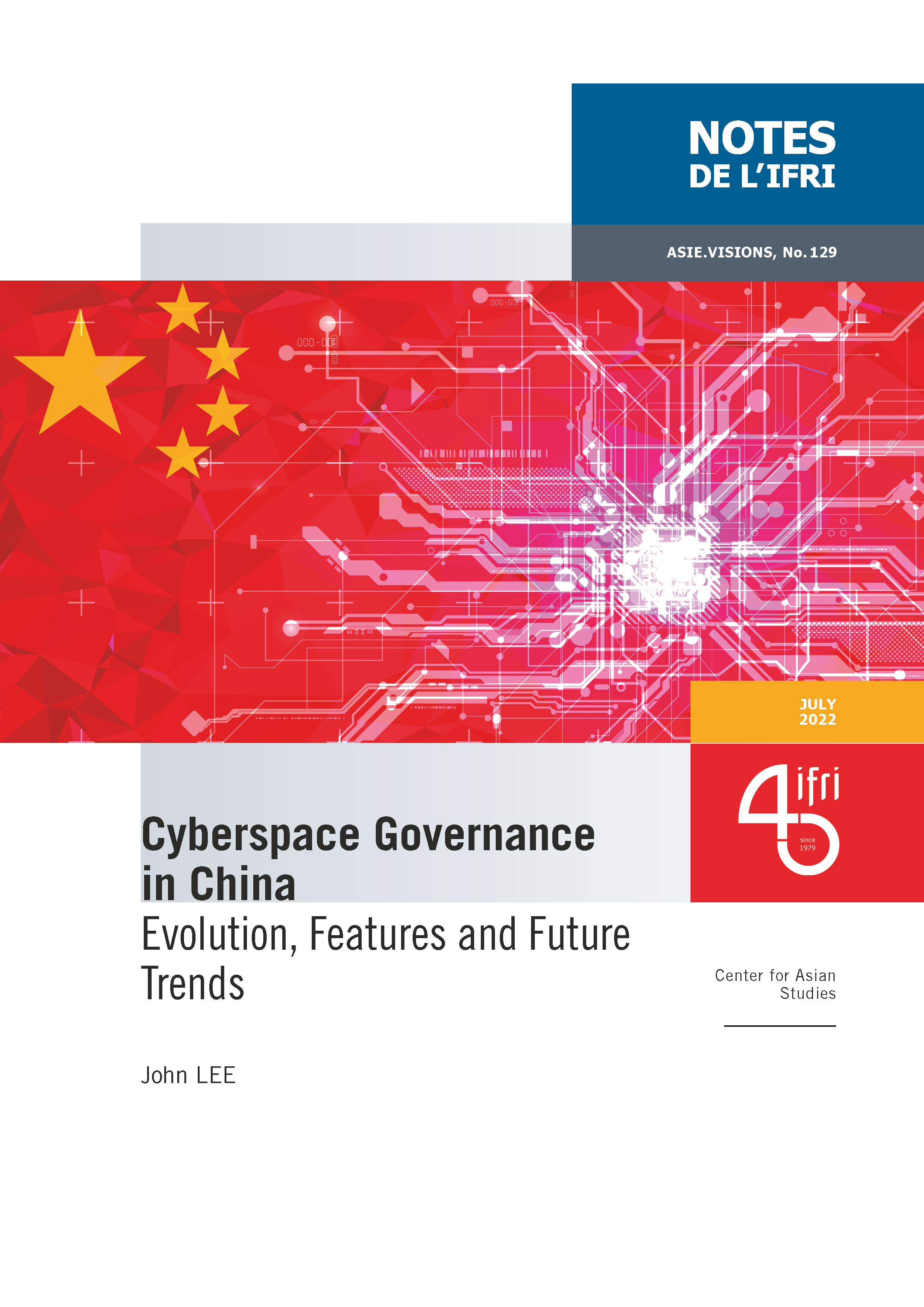Cyberspace Governance in China: Evolution, Features and Future Trends

As China’s political relations with most of the world’s technologically advanced states have worsened, Beijing has put in place the world’s most comprehensive regulatory and administrative system for governing cyberspace.

Increasingly onerous compliance challenges for actors using Chinese cyberspace, and China’s recent crackdown on internet technology firms have focused foreign attention on the Chinese Party-state’s goals for this critical domain. More globally, the growing pervasiveness of cyberspace has made its governance a key factor in international trade and politics, and therefore a topic of great importance.
To understand China's goals, it is not sufficient to look at recent events and contemporary pressures. China’s cyberspace governance regime is the result of a decades-long development process, over which the Party-state has responded to the global evolution of cyberspace and defined its interests against changing conditions. The emergent nature of cyberspace has created significant governance challenges even for the most technologically advanced nations. China entered this domain from a disadvantageous technological position, in the course of rapid development and relative political liberalization. Accordingly, China’s Party-state relatively early recognized cyberspace governance as an existential issue. Quoting the Chinese Communist Party’s journal of record, ‘if our Party cannot overcome the obstacles presented by the internet, it cannot maintain its long-term hold on power.’
This report summarizes the development of the Party-state’s engagement with the internet and the global digital technology industry, and the evolution of its policies towards managing cyberspace as an integrated whole. It then discusses the main actors and their roles in the ‘noodle bowl’ of institutions involved in governing Chinese cyberspace. Although still characterized in many respects by bureaucratic overlap and unclear definitions, this institutional system has now stabilized enough for its main aspects to be described. The same is true of China’s evolving regulation for cyberspace, the most important elements of which are described in the report, in particular the increasingly onerous rules governing data handling and cross-border data transfers.
In conclusion, China’s system for cyberspace governance and its future development is discussed in international context. For foreign governments as well as private actors, learning to engage with this system is an unavoidable task that will only become more complex and risk-laden, as the Party-state’s goals become more ambitious and political relations with Western countries show few signs of improving. China’s cyberspace governance system is unlikely to be rolled back, even in response to changing circumstances. Rather, it should be expected to continue expanding, giving the Party-state more visibility and tools of control over activity on China’s digital networks, and increasingly over foreign activity that impacts upon Chinese cyberspace. Nevertheless, China’s unique model may also provide constructive lessons for other nations, being shaped by many of the same challenges that cyberspace presents to societies worldwide.
Download the full analysis
This page contains only a summary of our work. If you would like to have access to all the information from our research on the subject, you can download the full version in PDF format.
Cyberspace Governance in China: Evolution, Features and Future Trends
Related centers and programs
Discover our other research centers and programsFind out more
Discover all our analysesEuropean Union-India: Lasting Rapprochement or Partnership of Convenience?
The partnership between the European Union (EU) and India has long been limited to economic exchanges. Its political dimension has gradually developed, culminating in its elevation to the status of a “strategic partnership” in 2004. However, the failure of negotiations for a free-trade agreement in 2013 slowed this momentum. Since the early 2020s, in an uncertain geopolitical context, bilateral rapprochement has gained new momentum.
Japan’s Takaichi Landslide: A New Face of Power
Prime Minister Sanae Takaichi has turned her exceptional popularity into a historic political victory. The snap elections of February 8 delivered an overwhelming majority for the Liberal Democratic Party (LDP), driven by strong support from young voters, drawn to her iconoclastic and dynamic image, and from conservative voters reassured by her vision of national assertiveness. This popularity lays the foundation for an ambitious strategy on both the domestic and international fronts.
The U.S. Policy Toward Taiwan Beyond Donald Trump: Mapping the American Stakeholders of U.S.-Taiwan Relations
Donald Trump’s return to the White House reintroduced acute uncertainty into the security commitment of the United States (U.S.) to Taiwan. Unlike President Joe Biden, who repeatedly stated the determination to defend Taiwan, President Trump refrains from commenting on the hypothetical U.S. response in the context of a cross-Strait crisis.

China’s Strategy Toward Pacific Island countries: Countering Taiwan and Western Influence
Over the past decade, China has deployed a diplomatic strategy toward the Pacific Island Countries (PICs). This strategy pursues two main objectives: countering Taiwan's diplomatic influence in the region and countering the influence of liberal democracies in what Beijing refers to as the "Global South."










